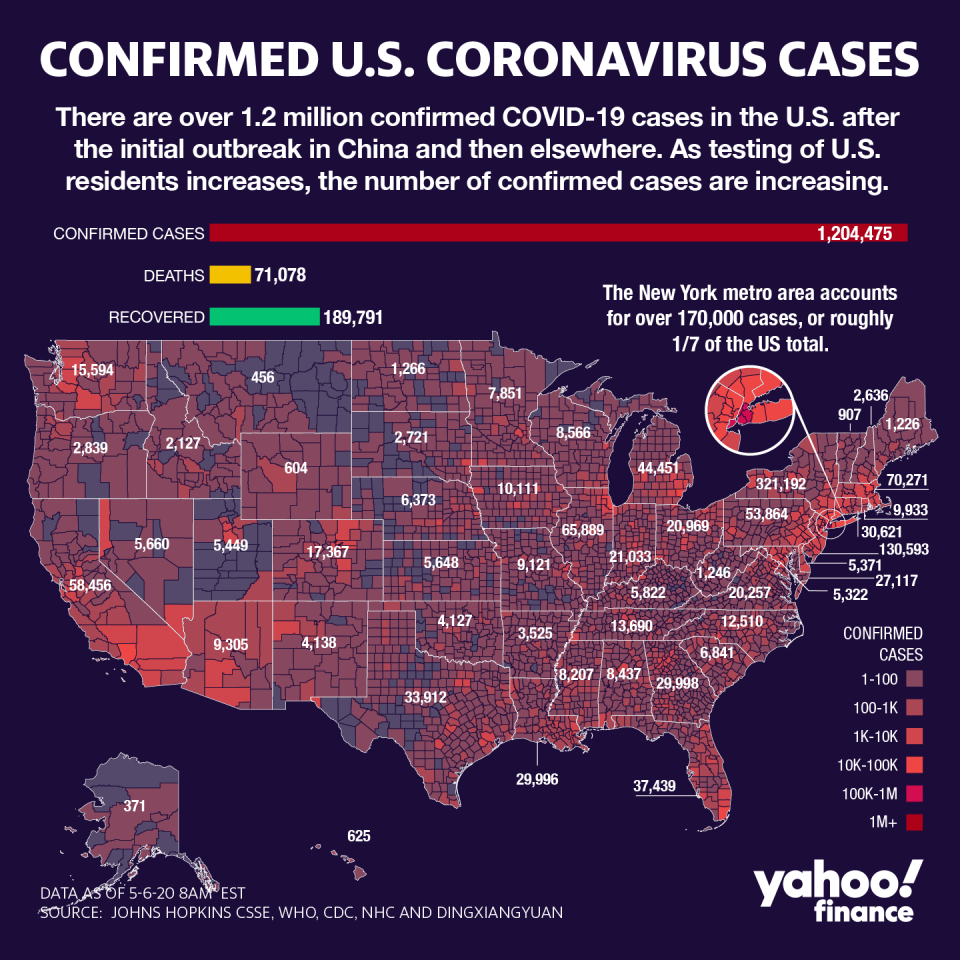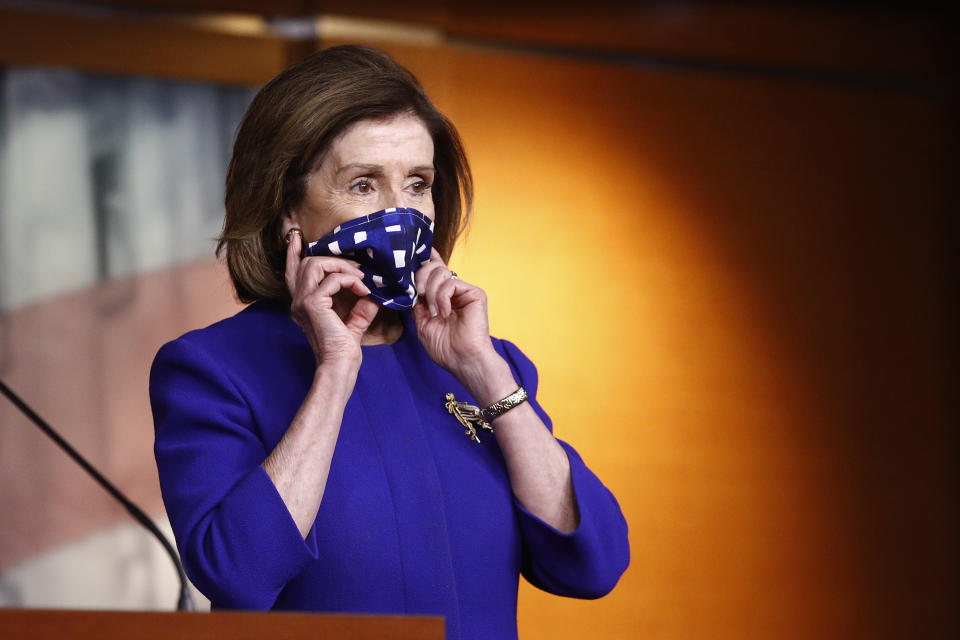What to look for in the fourth stimulus bill
Congress has passed $3.6 trillion in stimulus spending so far, and it will take a lot more to stabilize an economy reeling from the coronavirus pandemic. But Democrats and Republicans in Congress increasingly have different priorities about what should be in the next round of aid.
Ben Koltun of Beacon Policy Advisers recently joined the Yahoo Finance Electionomics podcast to discuss how a “phase 4” or CARES II bill, as it’s known inside the Beltway, is likely to take shape. Four things to look for:
Lots of aid to states and cities. This is Democratic House Speaker Nancy Pelosi’s priority. State and municipal budgets are getting crushed by an unprecedented surge of unemployment claims and a massive dropoff in tax revenue, as businesses shut down and furlough workers. Pelosi wants $1 trillion worth of aid, a figure Republican Senate Majority Leader Mitch McConnell doesn’t agree with. He favors a sum closer to $150 billion and says no federal aid can be used to help fund pension obligations in states like Illinois that are deeply underwater.

A liability shield for businesses. This is McConnell’s priority. He wants a new law that would prevent lawsuits against businesses that reopen but could be the source of coronavirus infections for workers or customers. Pelosi favors workers over business owners and is pushing back against a liability shield.
“Both are very likely to be included in the Phase 4 deal,” Koltun says. “Pelosi wants to think big and McConnell wants to think small and keep it narrow, but once the dam is broken and they’re trading one idea for another, this could certainly add up.”
The liability shield is touchy for Democrats because there’s already been criticism that earlier stimulus bills helped big businesses too much when they were means to help smaller firms. So a liability shield might be tailored explicitly to help small businesses. It could also be temporary, so it applies only during the reopening phase of the coronavirus crisis. And it might have explicit carve-outs for instances of gross negligence, so businesses can’t ignore workers and customer safety under blanket protection from lawsuits.

More aid for small businesses. Nearly $700 billion in aid to businesses under the Paycheck Protection Program apparently isn’t enough. The second tranche of this money, which Congress passed in late April, could be gone by mid-May, prompting a third round of funding. “We're already seeing Republicans like Marco Rubio and John Barrasso saying this will be a high priority, especially if the money is about to run out,” Kulton says. “Maybe it'll be $300 billion or so.” Democrats are suggesting this should become an open-ended “automatic stabilizer” program that provides money as businesses qualify, with no need for Congress to continually reauthorize it. That may be a stretch for the next bill, however.
More money for coronavirus testing. Congress has already provided $25 billion to help states, cities and health systems scale testing fo the coronavirus, widely viewed as a prerequisite for reopening more businesses. But many public health experts say that remains woefully short. One group of prominent public health experts has called for a $46 billion program of additional testing and contact tracing to identify everybody exposed to the virus. Nobel-winning economist Paul Romer thinks it will take $100 billion.
“There’s a lot of uncertainty there,” Koltun says. “It’s whether the Democratic and Republican leadership can get support from other members of Congress and be able to wedge that into the negotiating process.” The lobbying has only begun.
Rick Newman is the author of four books, including “Rebounders: How Winners Pivot from Setback to Success.” Follow him on Twitter: @rickjnewman. Confidential tip line: rickjnewman@yahoo.com. Encrypted communication available. Click here to get Rick’s stories by email.
Read more:
Get the latest financial and business news from Yahoo Finance
Follow Yahoo Finance on Twitter, Facebook, Instagram, Flipboard, SmartNews, LinkedIn, YouTube, and reddit.

